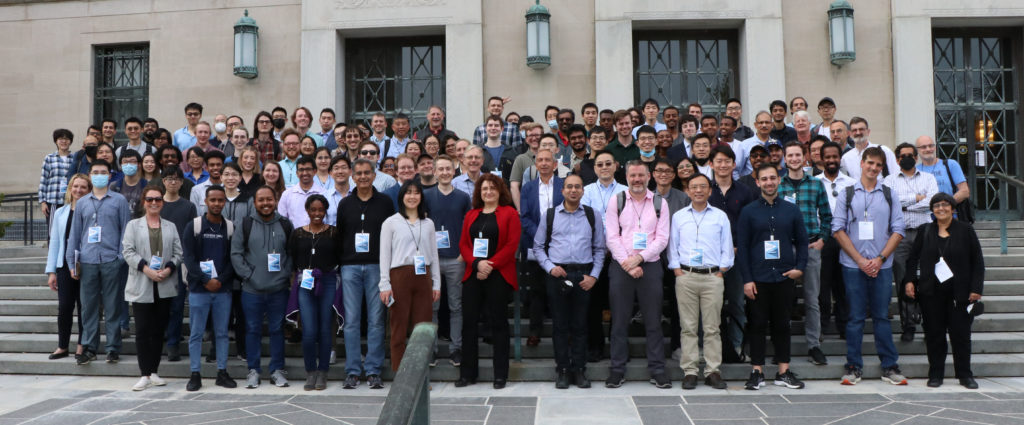ADA Center holds 2022 symposium

The Applications Driving Architectures (ADA) Research Center, led by Thurnau Prof. Valeria Bertacco, hosted its 5th annual symposium from May 10 to May 12, 2022. The event brought together computer architects, VLSI researchers, and compiler experts affiliated with the center, including students, post-doctoral fellows, principal investigators and sponsors.
The center’s goal is to streamline and democratize the design and manufacturing of next-generation computing systems by developing a transformative, “plug-and-play” ecosystem to encourage a flood of fresh ideas in computing frontiers such as autonomous control, robotics, and machine-learning.
Participants at the 2022 symposium engaged in three days of tutorials, workshops, 47 (that’s right!) poster presentations, and plenary presentations about the center’s research.
During the three days of the symposium, researcher participants presented results from the past year, and discussed with industry sponsors early-stage research addressing growing challenges in the spaces of data privacy in computing, novel silicon physical platforms, computing sustainability, and the growing ‘data flood’, due to the rate of new data production worldwide.
The symposium also included two co-located events: a tutorial on hardware design verification using the ADA-developed ILA framework, and a workshop on the rich set of benchmark suites developed by the Center’s principal investigators over the past four years (benchmark-suites.adacenter.org).
Finally, the event’s agenda included a graduated-student panel, where recently graduated doctoral students discussed the impact that the ADA experience had on their doctoral progress and career choices, and a sponsor fireside chat discussing the benefits that research center endeavors bring to industry in terms of technical advancements and development of a community of researchers collaborating across multiple adjacent disciplines.
The symposium was widely regarded as a great success, with a special highlight in the celebration of the 2022 Lynn Conway Best Student Research Award, hosted during a dinner with EECS Prof. Emerita Lynn Conway. The Award celebrated two recipients: Steve Zekany from the University of Michigan for their research on “Software Systems and Algorithms for Road-View Video Search” and Cesar Avalos Baddouh from Georgia Tech for their research on “Principal Kernel Analysis: A Tractable Methodology to Simulate Scaled GPU Workloads.”
Launched in 2018 with $32M in funding, and based at the University of Michigan, the ADA Research Center is funded through a government-industry consortium. It pursues research in the design of computing systems for the 2030 decade by leveraging the collective efforts of 21 faculty members and 130 graduate students from the University of Michigan, Harvard University, Massachusetts Institute of Technology, Cornell University, New York University, Princeton University, Duke University, Georgia Institute of Technology, University of Illinois at Urbana-Champaign, University of California/Berkeley, Purdue University, and University of Washington.
 MENU
MENU 
